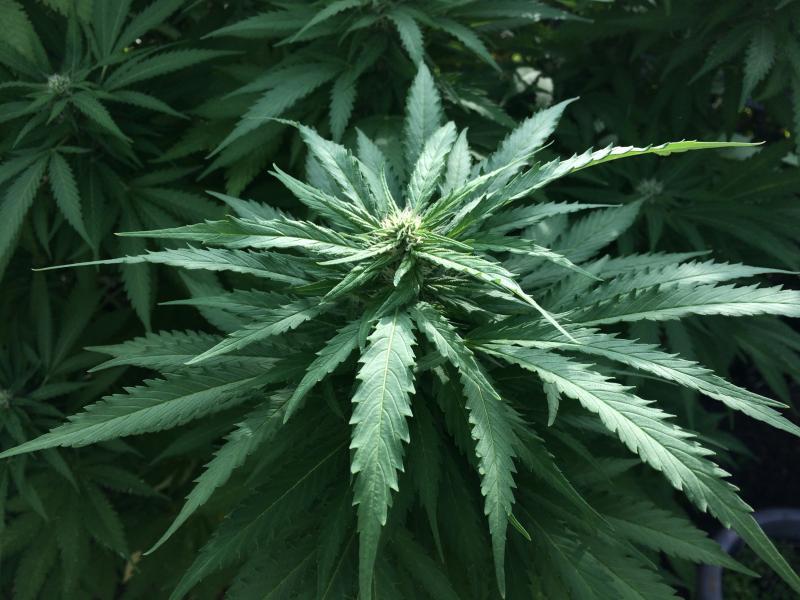Budding businesses: Here's the status of Dartmouth's potential marijuana operations
Nine years after Massachusetts legalized medicinal marijuana and nearly five years after recreational marijuana sales were approved, Dartmouth still has no legal cannabis businesses.
That is not for lack of effort by prospective purveyors of cannabis. There have been lots of inquiries, some preliminary plans and now a few enterprises that appear to be on their way to being greenlit by officials.
Under current statutory and zoning requirements, the Town of Dartmouth can grant up to three permits for retail establishments and one permit for cannabis cultivation and product manufacturing.
The closest toward getting that first site is Solar Therapeutics.
In May, the Somerset-based retailer signed a host community agreement — a contract stipulating terms and conditions of operation — with the town to build a store near the Dunkin’ currently under construction as part of the 479-493 Faunce Corner Rd. development.
A special permit was previously granted to Apotho Therapeutics for the same space, but Mark Bobrowski — attorney for property owner Paskamansett LLC — noted at a Feb. 8 Planning Board meeting that the Plainville-based business had not “consummated the land deal” with the landlord.
Currently, the town’s Director of Development Cody Haddad said the final step is for Solar Therapeutics to get a license from the state Cannabis Control Commission.
“They’re just waiting to hear back from them and get some building permits,” he said.
CEO Edward Dow told the Select Board in May that he expects the facility to be operational in less than a year.
He said the project would bring a lot of green into the town, as he anticipates around $15 million in sales for the first year of operation — with some of the revenues going back to the town.
The Dartmouth location will only be a retail operation. Any marijuana cultivation and packaging would take place in Somerset.
The company hoping to be granted the town’s only cultivation license is Apotho Therapeutics.
Their proposed site would be located at the Dartmouth Indoor Tennis Club at 757 State Rd.
Although Spring Town Meeting members rejected a zoning change that would allow a cultivation facility at that location, a variance was granted by the Zoning Board of Appeals.
The permit was initially granted to Maine-based marijuana grower Casco Botanical, but the cultivator backed out.
According to Haddad, Apotho has gotten “all of their zoning requirements” from the Zoning and Planning boards following their application for the site. Now, they have to apply for their host community agreement.
Once additional documentation is submitted to the town’s development office, town officials will conduct an internal review before making any recommendations to the Select Board.
Any recommendations, Haddad said, would likely be made some time in the fall.
Marijuana grown at the facility would be sold to retail sites across the state, including a potential Apotho store at the former Near East Asian Fusion Restaurant on Route 6.
In July, Apotho was granted a variance from the Zoning Board of Appeals to open a shop at 747 State Road.
While there was unanimous approval for retail marijuana on the site, board members still had some concerns over traffic flow and security on the property.
Apotho President Mathew Medeiros noted that under state regulations, licensed businesses must update local law enforcement on security policies and procedures as the process goes along.
This includes sharing building plans, camera locations, and items such as panic buttons.
Before the business can begin operation, Apotho needs to have a site plan approved by the town and also needs to execute a host community agreement with the Select Board.
“We’re excited to see a good, viable business get in here and start bringing in some revenue to the town,” Haddad said.
According to Medeiros, Apotho’s retail and cultivation locations could earn $1.2 million for Dartmouth per year. He said that is based on a projected income of $10 million per year for the retail side and $40 million for the cultivation side per year.
State regulations require that host communities can receive up to a three percent community impact fee and a three percent local tax on all marijuana sales, adding up to six percent.
The third potential retailer is Elevation Retail, which hopes to open a store at 529 Faunce Corner Rd.
The proposed site is in the town’s Marijuana Overlay District, but Haddad said it requires some setbacks since it is close to residential property and within 1,000 feet of the proposed Solar Therapeutics store.
In 2018, the Select Board signed a community host agreement with Coastal Compassion to build a 6,200 square-foot medical dispensary at the site, but plans fell through.
Elevation Retail is currently applying for a variance from the Zoning Board. Their petition was continued to Sept. 1.
“That could potentially be our three retail licenses,” Haddad said.












